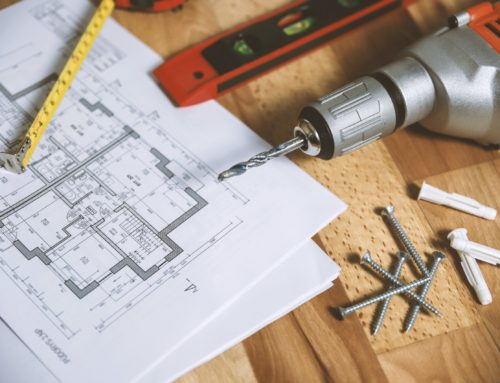“If you want to go fast, go alone. If you want to go far, go together.” – African proverb
About 10 years ago, I was trying to launch a product. It didn’t go well for many reasons but a big one was that I was too gung-ho and decided to try to do everything on my own. Since then, I’ve realized that business is a team sport–it’s impossible to go at it alone. You have to assemble your own team of Avengers so to speak with different skill sets.
How it all got started
For our March Meetup, it was great to see the physical embodiment of the power of partnership. Annie Dickerson and Julie Lam of Goodegg Investments met a little over a year ago at Joe Fairless‘s Best Ever Conference. Both of them have prior real estate investing experience, starting with house hacking before BiggerPockets coined the term by renting out a portion of their houses to cover their mortgage (and then some). Eventually because of searching for higher returns and avoiding hassles they both started investing out of state through syndications.
What makes a partnership great is complementary skills. Annie loved creating content and can blog all day if she had to. However, she didn’t particularly enjoy talking to investors. However, Julie was almost the complete opposite. She loved talking to investors about the numbers and the deal but didn’t necessarily like doing the marketing stuff. Aside from having the same goals and knowing the other person conducts themselves with integrity, having complementary skills is the most important ingredient for a successful partnership receipt to me.
Building out and adding value to your tribe
Another thing that has been able to help Goodegg grow was thought leadership and reaching out to their tribes. Julie was able to identify their target audience first with fellow mothers by sharing what they know best and adding value through different Facebook mommy groups. From there they were able to get on podcasts, speak at other Meetups and conferences, and now as contributing members of the Forbes Real Estate Council.
The not sexy part of growing a business is the behind the scenes systems. Annie uses Active Campaign to tag and segment their list. Once someone comes in their funnel they have triggers set up to automatically gather info about the investor. After that Julie uses Meetingbird to schedule time for Julie to speak with them one-on-one. Whenever there is a deal, the alert email and links to subscribe is also pushed out to the appropriate investors.
Speaking of integrity earlier, that is also the number one thing Annie and Julie look for in a deal sponsor. How they answer questions say a lot about the character of the person they end up raising capital for. They’ll of course also look at the track record of the team, how long they have been in business, and have they been able to meet the projected numbers. As to each specific deal, they’ll look to make sure the sponsor is properly capitalized to avoid a potential future capital call and they’ll double check to see the term of the loan is long enough as to avoid an untimely balloon payment.
For the syndication structure, as we have mentioned in previous Meetups, an 8% preferred return to the investors is pretty standard. Sometimes you might see 10% for projects that take longer to stabilize. After the preferred return is met, a 70/30 split is also common for multifamily deals, with the 70% going to the investors and 30% to the sponsors. Some might have another tier in the water fall for 60/40 if the returns exceed a certain threshold. Goodegg participate in these syndications as the capital raiser, along with the sponsors and asset managers. Often the capital raisers could earn up to 30% of the sponsors’ share if they’re bringing in all the equity themselves.
We also talked about different markets that look interesting to Goodegg. Dallas Fort Worth continues to be strong but seems like lately everybody and their grandmas are looking for deals in DFW. Huntsville and Jacksonville are two markets that are seeing potential growth. Houston is also an interesting market. With Hurricane Harvey it almost seems to have knock the market back a notch in the cycle as they see properties that need fixing up and rents going up for folks needing a place to stay.






